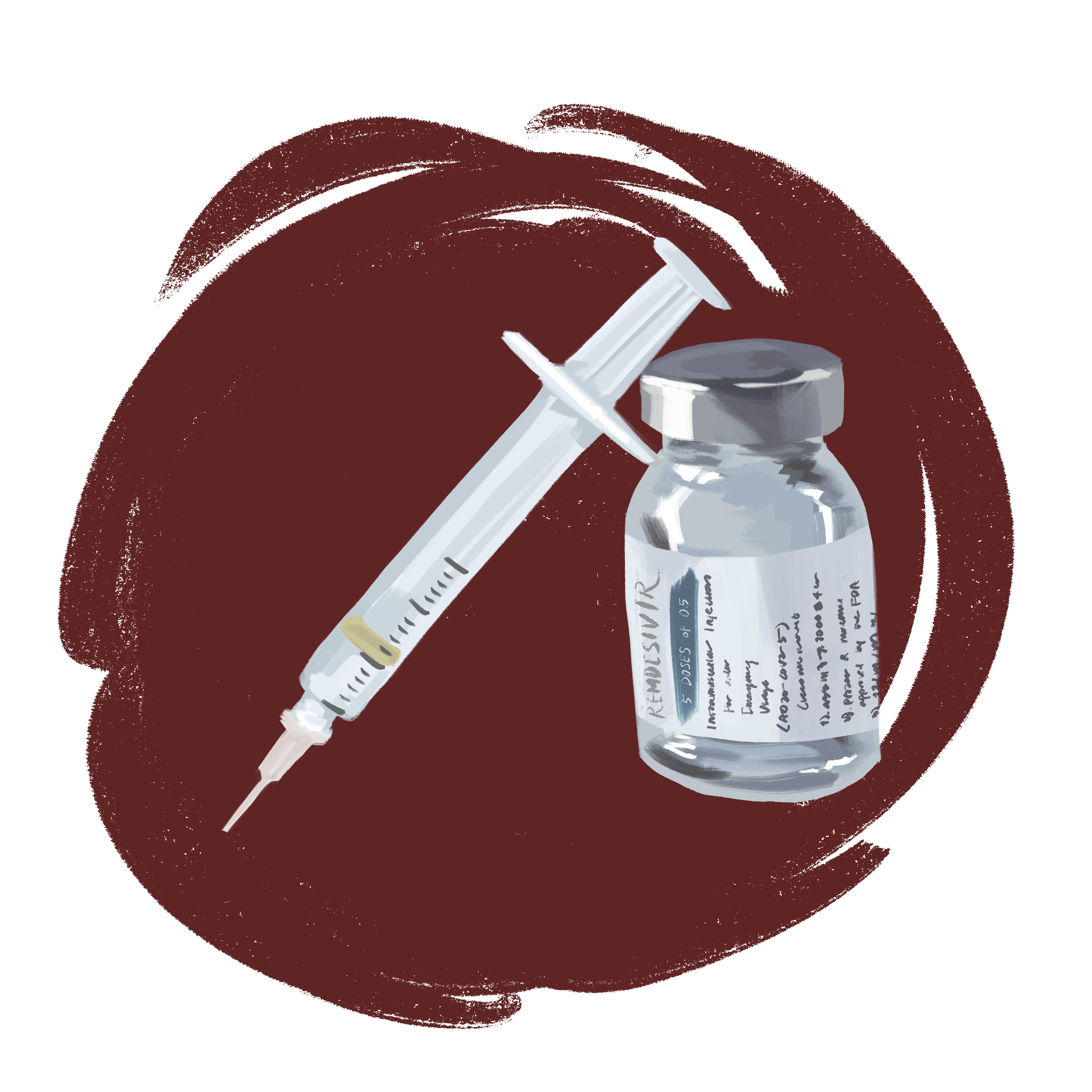Yale scientists identify remdesivir resistance in immunocompromised COVID-19 patient
Researchers at the Yale School of Public Health and the School of Medicine identified a SARS-CoV-2 remdesivir resistance mutation in an immunocompromised patient.

Cecilia Lee
A team of Yale researchers observed a SARS-CoV-2 mutation resistant to remdesivir — an antiviral medication — after prolonged treatment in an immunocompromised patient treated at Yale New Haven Hospital.
In a recent case study awaiting peer-review, a team of scientists at the School of Public Health and the School of Medicine identified a mutation to the medication that has been used in COVID-19 patients. The mutation appeared following a 10-day remdesivir treatment and was eventually cleared following a monoclonal antibody treatment. This mutation, which had previously only been identified in a lab setting, conferred resistance against the drug but had a slower rate of replication, which is the speed at which the virus can produce copies of itself, than SARS-CoV-2 variants without the resistant mutation.
“Remdesivir is an antiviral agent that is widely used in patients hospitalized with COVID, and it’s also been widely used in immunocompromised patients who have these persistent infections,” said Albert Ko, professor of epidemiology at the School of Public Health and one of the study’s authors.
Ko explained that although some laboratory studies had produced SARS-CoV-2 mutations that were resistant to the drug, the mutation had never been observed in a patient prior to this case study.
According to Shiv Gandhi, clinical fellow at the School of Medicine and lead author of the study, the patient was admitted because she had persistent fevers for approximately 150 days and continuously tested positive for SARS-CoV-2, the virus that causes COVID-19.
“She was pretty profoundly immunocompromised as a consequence of having a malignancy and then subsequently chemotherapy,” Gandhi said. “So she didn’t really have an immune system that was able to respond to the virus.”
Gandhi said that the researchers suspected that she had a persistent infection with SARS-CoV-2, which had not previously been reported in a patient at that point in time.
Because the case seemed consistent with a SARS-CoV-2 infection, the team decided to treat it as such. The patient was prescribed remdesivir — the only approved COVID-19 treatment for hospitalized patients at the time.
According to Gandhi, the drug was effective almost immediately. After having a fever for almost 150 days, it subsided the day after her first dose of remdesivir and never returned. Additionally, the team observed a decline in the patient’s viral load, or the number of copies of virus present in a nasal COVID-19 test.
“We thought we were on the right track,” Gandhi said. “But during the course of treatment we were tracking the viral load, and the viral load started to creep back up.”
Although the patient showed signs of improvement, her COVID-19 tests returned remnants of the live virus. The team was concerned that the remdesivir treatment was not enough to clear the virus completely, Gandhi said. With no other approved treatments available, the team sought compassionate use approval from the FDA to use monoclonal antibodies. This would allow them to administer a treatment that was not fully approved in the absence of satisfactory alternatives. Gandhi explained that this treatment is designed to prevent antibody resistance by targeting two different parts of the virus, which the researchers hoped would prove to be more effective than remdisivir.
The request was approved, and when the patient was treated with monoclonal antibodies her viral load immediately declined. After five months of isolation at home and continuous positive test results, her COVID-19 tests came back negative.
Mario Peña-Hernández GRD ’26, one of the study’s authors, said that following the patient’s recovery, the team was curious about the development of any mutations. In search of an answer, they sequenced viral samples taken from the patient during her remdesivir treatment. According to Ko, the researchers found a mutation that had been only been previously identified in a lab as a remdesivir resistance mutation.
“It’s a good documentation of something that we need to be aware of and something that we need to keep our eye on,” Ko said.
Ko emphasized the importance of finding out how frequently this mutation can occur, especially in places where remdesivir and similar treatments are being widely used. Additionally, he noted the importance of investigating the transmission of this mutation once it emerges.
According to Peña-Hernández, there may be a fitness cost associated with the remdesivir resistant mutation.
“When I was growing these mutants, I noticed that the replication rate of these mutants was slower than the virus that didn’t have this mutation,” he said.
Peña-Hernández explained that if this mutation emerged in the general population, it would likely be overwhelmed by the existing variants, given its low rate of replication. Although he is hopeful, he noted that future work will need to be done to determine whether this tradeoff always exists.
Going forward, Peña-Hernández said that researchers should focus on identifying mutations that confer resistance to antivirals other than remdesivir. He noted that the team tested the mutation with a different antiviral, monopiravir, and found that it was not susceptible to the resistance. However, he said that a different mutation resistant to monopiravir or other antiviral drugs could develop.
“The main takeaway is to pay a little more attention to immunocompromised patients and be on the lookout for these kinds of mutations,” Ko said.
Remdesivir was approved by the FDA for the treatment of patients hospitalized with COVID-19 on Oct. 22, 2020.







